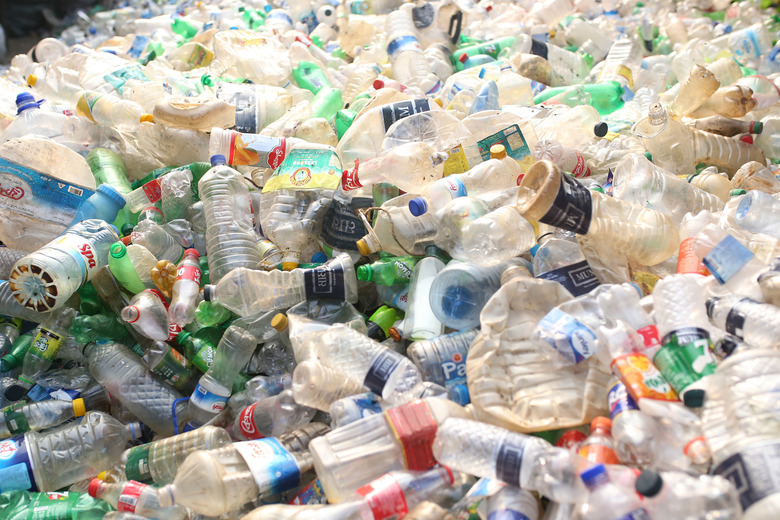The Harmful Effects Of Petrochemicals On The Environment
Petrochemicals might sound complex and confusing, but we interact with and use petrochemical-based products frequently in our daily lives. From our clothing to the Tupperware container holding your sandwich for lunch, petrochemical products factor heavily into life as we know it. Unfortunately, it is known that petrochemicals have harmful effects on the environment. So, what are petrochemicals, and can they be dangerous to humans? Are petrochemicals harmful to animals and other living organisms? What are the effects of petrochemicals on the environment?
What Are Petrochemicals?
What Are Petrochemicals?
Before delving into the petrochemical industry environmental impact, you should understand exactly what petrochemicals are. Petrochemicals are compounds produced using natural gas or petroleum – a crude oil. This process can create a number of different types of chemicals, including benzene, ethylene, methanol, propylene and many more.
What Kind of Products Contain Petrochemicals?
What Kind of Products Contain Petrochemicals?
Perhaps the most well-known, and also potentially the most damaging, of the products produced using petrochemicals is plastic. However, plastic is far from the only common product developed using petrochemicals.
For example, the petrochemical ethylene is used during the production of glue and other adhesives, paper, shoes and small electronics. Companies use the chemical propylene to produce furniture, paint, clothing, food packaging and even medicine. Ink, building insulation, sporting equipment, solar panels, fertilizer – you can find petrochemicals in a wide range of different products.
What Is Petrochemical Waste?
What Is Petrochemical Waste?
Unfortunately, the production of these petrochemicals produces waste products that can impact the environment and human health. Petrochemical waste is any byproduct of petrochemical production, such as toxic waste and gaseous emissions. The primary components of petrochemicals – natural gases and petroleum – also produce their own wastes and byproducts during the extraction process.
The Petrochemical Industry's Environmental Impact
The Petrochemical Industry's Environmental Impact
Researchers have studied many different types of effects of petrochemicals on the environment. Petrochemical production contributes to air pollution, water pollution and soil pollution. This can impact smaller systems, such as individual ecosystems, but also has repercussions on a global scale as well. For example, greenhouse gases emitted through the production of petrochemicals can contribute to global climate change.
Effects of Petrochemicals on Air Pollution
Effects of Petrochemicals on Air Pollution
Whether through normal emissions or accidental releases, petrochemical plants release harmful chemicals into the air during production. Researchers have identified potential cancer-causing agents from the emissions of petrochemical plants and have seen increases in respiratory illnesses in the surrounding areas. Some of the different air pollutants emitted by petrochemical plants include particulate matter, carbon monoxide, nitrogen oxide, hydrogen sulfide and more.
Effects of Petrochemicals on Water Pollution
Effects of Petrochemicals on Water Pollution
Petrochemical production also contributes to water pollution – both at the surface in lakes, ponds and streams as well as in the groundwater. The petrochemical production process results in wastewater contaminated with sulfides, ammonia and other compounds. Some plants utilize wells to inject the wastewater underground, which has historically resulted in contamination of the aquifers and groundwater where people get their drinking water.
Governmental regulations such as the Safe Drinking Water Act and the Clean Water Act help provide restrictions for wastewater disposal to reduce the effects of petrochemicals on human health and the surrounding environment. These regulations ensure that the petrochemical plants process the wastewater and remove the harmful chemicals prior to disposal.
Effects of Petrochemicals on Soil Pollution
Effects of Petrochemicals on Soil Pollution
Soil pollution generally only impacts the immediate vicinity of the petrochemical plant, though it can contribute to water pollution through runoff. Spills and leaks result in chemical buildup in the soil that can impact the health of the ecosystem and contribute to other forms of pollution.
However, plants can successfully use bacteria to break down and remove spills and soil contamination and mitigate this form of pollution. Residue from petrochemical production can also build up in landfills and other disposal sites as well.
References
- Energy Education: Petrochemical
- International Energy Agency: The Future of Petrochemicals
- Recent Advances in Petrochemical Science: Hazardous Effects of Petrochemical Industries: A Review
- Environmental Protection Agency: Environmental Impact of the Petroleum Industry
- Elmelin: How Environmentally Sound is the Petrochemical Industry?
Cite This Article
MLA
Zinni, Yasmin. "The Harmful Effects Of Petrochemicals On The Environment" sciencing.com, https://www.sciencing.com/harmful-effects-petrochemicals-environment-8771898/. 30 September 2021.
APA
Zinni, Yasmin. (2021, September 30). The Harmful Effects Of Petrochemicals On The Environment. sciencing.com. Retrieved from https://www.sciencing.com/harmful-effects-petrochemicals-environment-8771898/
Chicago
Zinni, Yasmin. The Harmful Effects Of Petrochemicals On The Environment last modified August 30, 2022. https://www.sciencing.com/harmful-effects-petrochemicals-environment-8771898/
